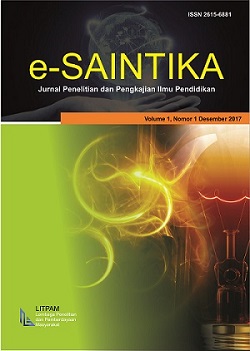
Jurnal Penelitian dan Pengkajian Ilmu Pendidikan: e-Saintika
Yazarlar: ["Emile Mather", "Martha Matashu", "Jan Meyer"]
Konular:-
DOI:10.36312/esaintika.v6i2.660
Anahtar Kelimeler:Technology Acceptance Model (TAM),Students’ perception,Information and Communication Technology (ICT),Teaching and Learning
Özet: This study examines students’ perceptions of factors influencing the adoption and use of Information and Communication Technology (ICT) in learning during Coronavirus Disease (COVID-19) at one rural based South African University. To continue with learning under the COVID-19 pandemic conditions higher education institutions migrated to online teaching and learning platforms. The transition towards online learning took place in background where even prior COVID 19 most institutions were faced with the challenge of promoting students’ adoption and use of ICT in their learning. The Technology Acceptability Model (TAM) is an information system theory that looks at various individual aspects that influence actual technology usage and acceptance. As such, there is a growing research interest to explore students’ perceptions of factors that influence their use of ICT in their learning at higher education institutions subsequently studies that focuses on rural based context are still limited. Resultantly, guided by the theoretical constructs from the TAM this study applied a census approach and used a quantitative technique to examine the perception that affect students’ acceptance and use of ICT in their learning. The study discovered a significant correlation between attitude towards use (U), perceived ease of use (PEOU), behavioural intention (BI), and perceived usefulness (PU), all of which have a substantial impact on students' perceptions and acceptance of ICT use in their learning. Nonetheless, the results showed that no significant correlations exist between external variables (EV) and ICT actual system uses. Based on these findings, this study concluded that insights from the findings on students’ the adoption and use of ICT in learning is affected by several perceptions, behavioural intention, and perceived ease of use of technology. Such insights provide policy makers with an indication of students’ perceptions that should be considered when designing strategies an polices aimed at enhancing student’s adoption and use of technology in learning in rural based South Africa University during and post COVID-19 pandemic.